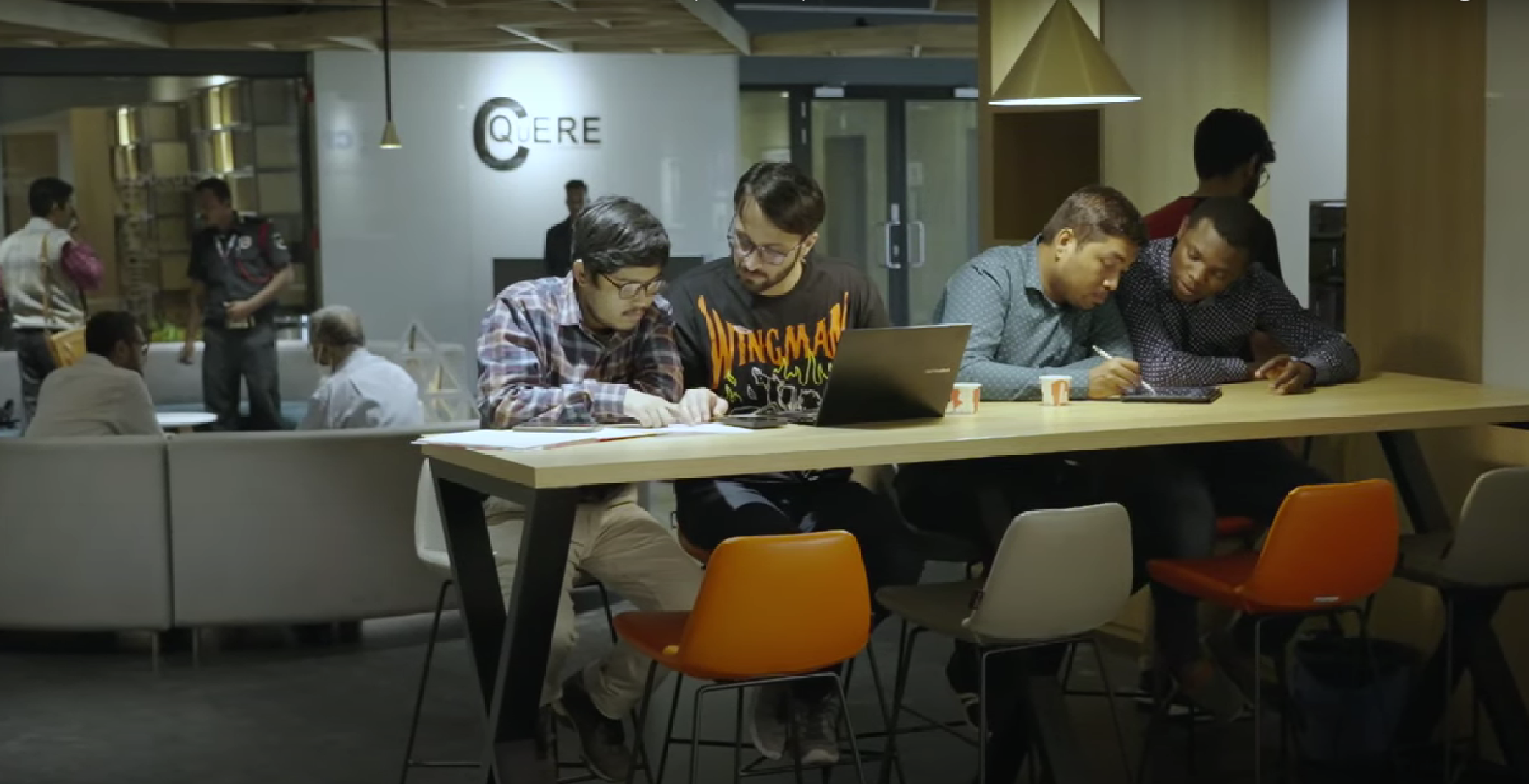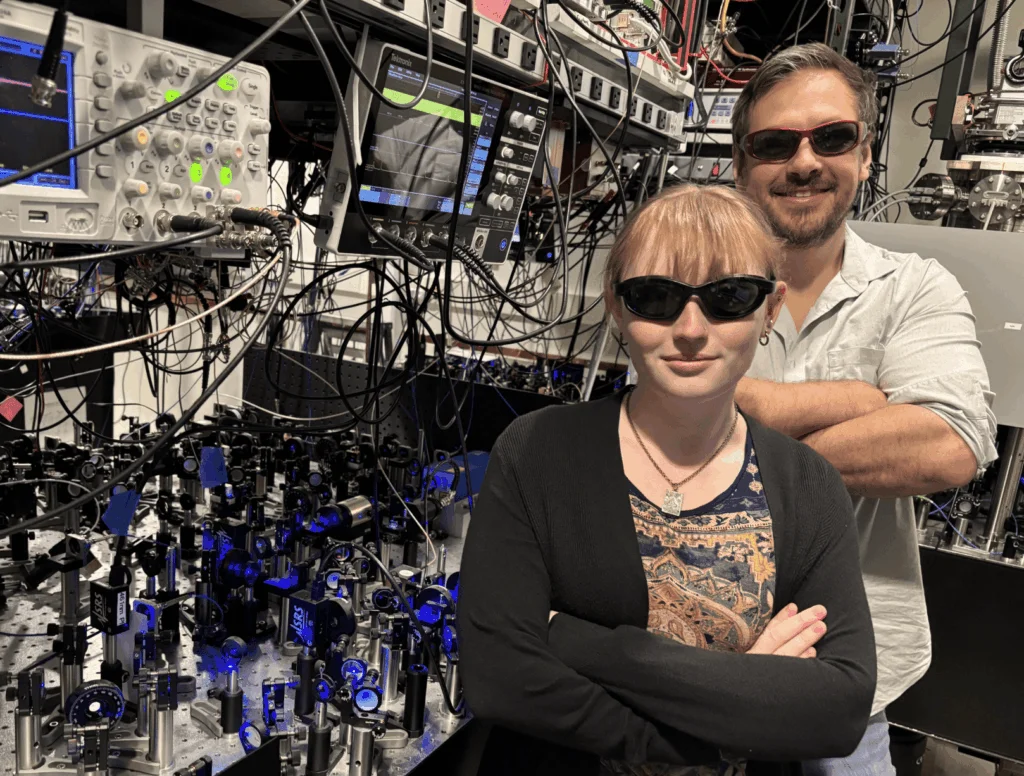CQuERE at TCG Crest
India’s research in quantum computing is exemplary, with several academic institutions and research organizations working on different aspects of quantum computing. Two such examples are The Indian Institute of Science (IISc), Bangalore, whose Department of Physics at IISc has a strong focus on quantum information and computation research. Researchers at IISc are working on areas such as quantum algorithms, quantum error correction, quantum cryptography, and quantum communication.
One more to mention is Harish-Chandra Research Institute (HRI) in Allahabad, which has a strong focus on quantum information and computation.
Others, too, like CQuERE at TCG Crest, a Kolkata-based institute, is doing some excellent research in quantum science with projects that explore quantum algorithms for atoms and molecules, quantum sensing and quantum computing with superconducting quantum circuits.
The goal of the institute is to implement a quantum computer for both gate-based and adiabatic approaches. CQuERE’s vision is to establish a world-class research centre that harnesses the talents of the best and brightest from India and beyond.

Recently, CQuERE at TCG Crest explained what they’re doing on WebsEdge Science and why the research is so important.
“Crest stands for Centre of Research and Education in Science and Technology. It’s a not-for-profit activity in multiple areas of interdisciplinary research,” said Sabyasachi Bhattacharya, Director at TCG Crest.
Twofold Objectives
While Bhanu Das, Director Centre for Quantum Education, Research and Education, said: “The Centre for Quantum Engineering, Research and Education was established in 2020. The objectives of the Centre are twofold: First, to pursue cutting-edge research in quantum science and technology; and second, to provide high-quality education to students and to train them to carry out research in this important area in the field.”
Das continued by saying the primary research area being pursued currently is quantum computing, though the Centre has taken steps to start research on quantum sensing, with the intention to work on quantum communication in the future, adding that they have made substantial progress in the applications of quantum algorithms to atoms and molecules.
“In our group, we focus on carrying out atomic and molecular calculations on quantum computers using quantum algorithms. Having said that, we also focus on allayed areas like quantum error correction. And most importantly, we are also focusing on our long-term goals of tackling real-world problems using quantum algorithms,” said Srinivasa Prasannaa, an Assistant Professor at the Centre for Quantum Engineering, Research and Education.
Debashis Mukherjee, a theoretical chemist and Distinguished Chair at the Raman Centre for Atomic, Molecular and Optical Sciences at the Indian Association for the Cultivation of Science, Kolkata, believes that if the technology moves in a direction where the error mitigations are more controllable, the number of qubits climbs and the decoherence time is controlled, then he sees lots of possibilities.
“I don’t foresee the immediate emergence of tabletop or laptop computers in the quantum domain, but it will certainly come in a way I mean, who could foresee that he sees will be developed,” he said.
Shibdas Roy, an Assistant Professor at the Centre for Quantum Engineering, Research and Education then talked about what the Centre is actually doing:
“We are building a novel quantum machine learning model that mimics quantum mechanical state evolution so that it can be self-aware and be able to correct its course if it can go wrong, unlike any existing machine learning model.”
Bhupendra N. Dev, a Professor at the Centre, added that they plan to implement a superconducting qubit platform for both gate-based and annealing-based quantum computation. “For qubits,” he added, “it is desirable to have longer coherence time for all applications in quantum systems, including quantum computation.”
Research Scientist Aishik Acharya went further, explaining that the Centre is also focused on translational research, where they bring the science from the laboratory to field applications, working in quantum sensing by developing cold atom gravimeters which will map gravity locally.
Standing on the Shoulders of Giants
The last word went to Bhattacharya, Director at TCG Crest.
“We have invested extremely heavily in state-of-the-art equipment which was designed by us, and we can already see great interest among our collaborators who have seen these facilities that we have built,” said Bhattacharya, noting that people always think that science is something we do today, which he believes is not completely true. “We have ancestors and these ancestors are very inspiring figures who brought to us knowledge and wisdom. And in Newton’s language, we stand on the shoulders of giants. This is almost like the transistor revolution that we had seen more than 50 years ago. So quantum brings a unique opportunity in which you have to be a participant, regardless of what you are, where you are.”
It looks like exciting times are ahead for CQuERE at TCG Crest and the general Indian quantum ecosystem.
Featured image credit: APSTV
For more market insights, check out our latest quantum computing news here.















